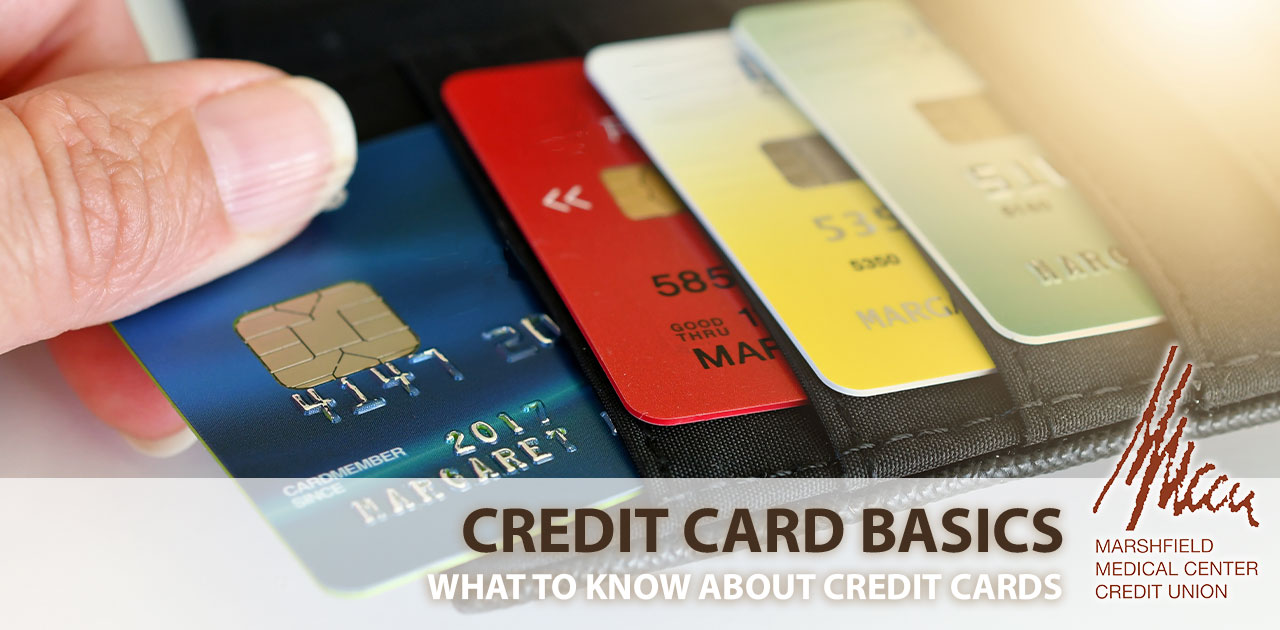Managing your credit today helps build better credit for tomorrow.
Your first credit card is a rite of passage. It may be the first time in your life that you are being entrusted with a credit line, which means you are able to spend money you probably haven’t earned yet. Using the card responsibly shows you know how to manage money and puts you on the road to building a solid credit history. (Keep in mind that late payments and going over the credit limit may damage your credit history.)
Credit Cards 101
A credit card is basically a loan from your financial institution. They assign you a pre-determined credit limit and you can pay back whatever you charge either in full or in monthly installments. If you don’t pay back the entire amount owed each month, you will owe interest on the outstanding amount and any new purchases. For Balance Transfers and cash advances, interest begins accruing from the time they are booked.
Credit cards offer the convenience of being able to buy what you need NOW with the security of not having to carry cash. You also receive fraud protection, and in some cases rewards for making purchases.
With these advantages also comes responsibilities. You need to manage credit cards wisely by understanding all of the card’s terms and conditions; paying on time; and realizing the true cost of purchases and transactions made with credit.
Credit Card Glossary
- Annual Fee: what you’ll be charged each year for using the card. Many cards have no annual fee, so shop around.
- Annual Percentage Rate (APR): an annualized interest rate. Credit cards often have different APRs for Purchases, Cash Advances, and Balance Transfers, so make sure a low APR in one category isn’t offset by an unreasonably high APR in another. Also, if there’s a low introductory APR, note how long it’s offered and what the rate rises to afterwards.
- Balance Transfer Fee: sometimes charged to transfer balances from one credit card to another.
- Cash Advance Fee: charged when you are getting cash from your line of credit. Cash Advances can bail you out of emergencies, but can become expensive loans if you don’t pay them off quickly.
- Late Payment Fee: charged if payment is received after the due date.
- Minimum Interest Charge: imposed when you carry forward a balance.
After Getting a Credit Card
Once you do find a credit card that is right for you, practice good financial habits. Make sure you pay on time, don’t go over your credit limit, and don’t spend more than you can afford to repay. Some credit card issuers offer personalized and automatic alert messages, sent to your email or text (standard messaging rates apply) to help you keep track of:
- Available credit
- Balances
- Payment due date
- Payment history
- Purchase activity
Understand Your Rights as a credit cardholder. You’re entitled to protection:
- Zero fraud liability means you may not be responsible for fraudulent charges when you report them promptly
- In some cases, you have the right to dispute purchases with merchants for unsatisfactory products or services
Understanding Your Credit Score
In the simplest terms, a credit score is a number that helps financial institutions predict how likely you are to repay your debt. The higher the number, the better the score, which indicates strong credit history.
Credit scores are based on credit history and things like race, religion, national origin, gender, age, education or marital status are prohibited from factoring into a credit decision.
Your credit score is fluid. Every time you apply for, use, make or miss a payment on a loan or credit card, you build another entry on your credit report – and raise or lower your credit score. The best way to have an excellent credit score is to start out doing everything right and keep it that way.
If you have a score below 600, you’ll likely have trouble securing credit. A score between 600-700 may only allow for loans at higher interest rates. Favorable scores above 700 will offer more possibilities and lower interest rates among lenders.
Here are some good guidelines:
- Establish a good credit record. Open a credit card in your name, use it wisely, and limit the number of cards you open
- Be sure to pay your monthly balance on time. If you miss your payment due date, send it as soon as possible
- Be mindful of your balance and credit limit. Keeping well within your credit limit can help you manage payments and credit score
- Carrying balances on multiple credit cards can lead to increased overall debt. Too many open accounts may lower your credit score.
- Check your credit report throughout the year to make sure it is error free. Each of the three major credit reporting agencies offer you a free credit report once a year. Since each reporting agency offers a free report, pull one in January, May, and September each time from a different agency, so you can monitor your activity throughout the year. Visit annualcreditreport.com to get your free report today
Credit Cards Offered by MMCCU
Whether you want to pay down balances faster, maximize cash back, earn rewards, or begin building your credit history, we can help select the best card for you. MMCCU members have access to different credit card options through Visa. Learn more here.
We’ll work with you to determine which option is best for your situation. To learn more, or if you have any questions about this subject or anything financial-related, please feel free to reach out!



